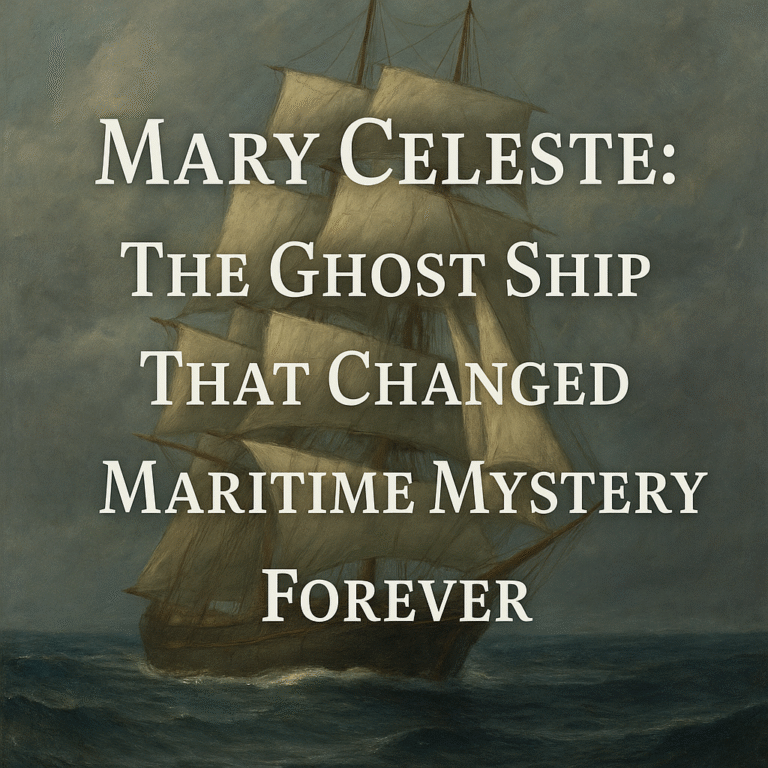Introduction: A Legend That Won’t Sink

For centuries, the Lost City of Atlantis has captured the imagination of scholars, explorers, writers, and dreamers. First introduced by the Greek philosopher Plato in 360 BCE, Atlantis was described as a wealthy and powerful civilization that mysteriously vanished beneath the waves in a single day and night.
But was Atlantis real, or was it simply an allegory created by Plato to illustrate deeper philosophical points? As we dive into the origins, theories, and popular culture surrounding Atlantis, we’ll try to understand why this ancient legend remains one of the world’s most enduring historical mysteries.
The Origin of Atlantis: Plato’s Ancient Dialogues
The story of Atlantis comes exclusively from Plato’s works—specifically, his dialogues Timaeus and Critias. According to Plato, Atlantis existed 9,000 years before his time and was located “beyond the Pillars of Hercules,” commonly identified today as the Strait of Gibraltar.
In Critias, he describes a utopian island nation blessed with rich soil, abundant resources, grand architecture, and advanced technology. Atlantis was ruled by kings descended from Poseidon, the Greek god of the sea, and it was home to a society admired for its naval strength, agricultural wealth, and magnificent temples.
But as the story goes, the Atlanteans became greedy and corrupt. In response, the gods struck down the city with earthquakes and floods, submerging it into the ocean.
What Made Atlantis So Unique?
Plato’s description of Atlantis stands out for its remarkable detail and futuristic imagery. According to the philosopher:
- The city was built in concentric circles of water and land.
- A massive canal connected the central palace to the sea.
- The Atlanteans mined precious metals like orichalcum (a legendary metal).
- They built vast irrigation systems and temples with gleaming towers.
- Atlantis had a powerful army and navy that once conquered parts of Europe and Africa.
This rich narrative makes Atlantis one of the earliest examples of a lost civilization myth—a theme that would be echoed later in stories like El Dorado, Lemuria, and Shambhala.
Where Could Atlantis Be? Popular Theories and Locations
Though many scholars believe Plato invented Atlantis as a political or moral allegory, that hasn’t stopped centuries of speculation about its real location. Here are some of the most prominent theories:
1. Santorini (Thera), Greece
The most widely supported theory is that the story of Atlantis was inspired by the Minoan civilization on the island of Santorini. Around 1600 BCE, a massive volcanic eruption destroyed the island and possibly triggered tsunamis that devastated nearby Crete. The Minoans were known for their wealth, maritime dominance, and advanced architecture—traits similar to those Plato gave to Atlantis.
2. The Richat Structure, Mauritania
Also known as the Eye of the Sahara, this geological formation in the Sahara Desert resembles Atlantis’s circular design. Though geologists say it’s a natural structure, some theorists believe the layout matches Plato’s blueprint too closely to ignore.
3. Doñana National Park, Spain
Archaeologists have uncovered submerged structures in this region of southern Spain, prompting speculation that it could have been part of a real-life Atlantis settlement destroyed by tsunamis.
4. The Azores Islands
Some believe the mid-Atlantic Azores—a group of Portuguese islands—are remnants of Atlantis. This theory leans heavily on the idea that the island was truly “beyond the Pillars of Hercules,” placing it in the Atlantic Ocean.
Is Atlantis Just a Myth?
Most modern historians and scientists agree: Atlantis is a myth.
There’s no concrete archaeological evidence supporting the existence of a lost continent matching Plato’s descriptions. Many scholars argue that Plato crafted the story as a cautionary tale to illustrate the dangers of moral decay, hubris, and the failure of political ideals.
Still, the story of Atlantis remains deeply embedded in popular culture, continuing to fuel documentaries, books, movies, video games, and fringe scientific exploration.
Atlantis in Popular Culture
The legend of Atlantis has evolved far beyond Plato’s original writings. From Disney’s Atlantis: The Lost Empire to mentions in shows like Ancient Aliens, the idea of a vanished, advanced civilization has become a symbol of lost knowledge and mystery.
Some alternative theorists even suggest connections to aliens, advanced prehistoric technology, or underwater pyramids—though none of these claims are supported by mainstream science.
Why Atlantis Still Captivates Us
Atlantis endures not because of what it was, but because of what it represents:
- A perfect society that collapsed due to greed and pride
- The mystery of the ocean’s unexplored depths
- The hope that something astonishing may still lie hidden beneath the waves
For believers and skeptics alike, Atlantis remains a symbol of the tension between human greatness and human downfall—a tale that continues to spark curiosity and imagination across generations
Final Thoughts
Whether fact or fiction, the Lost City of Atlantis continues to stir the imagination of readers, researchers, and adventurers alike. It’s not just a story about a city that vanished—it’s a story about who we are, what we value, and how easily greatness can disappear if not guarded with humility.




